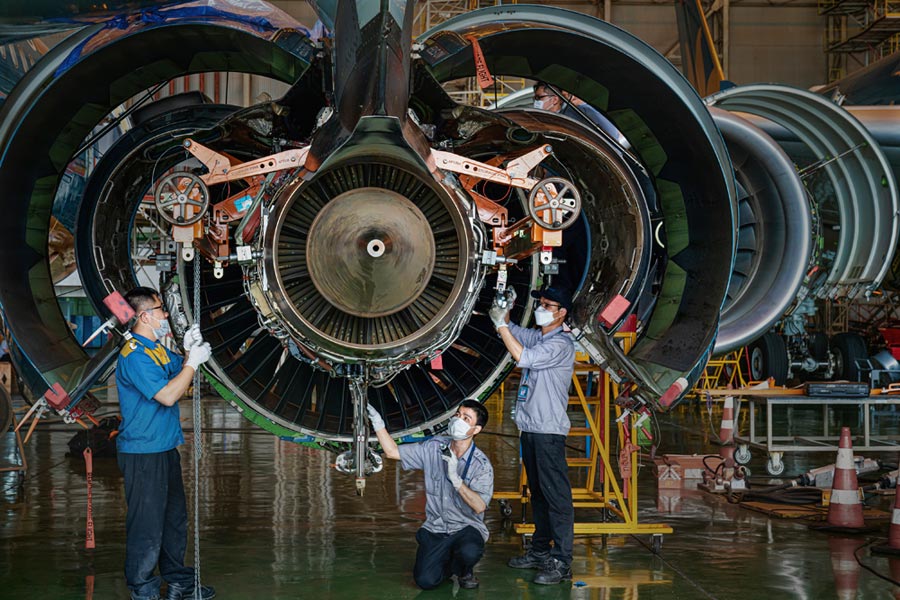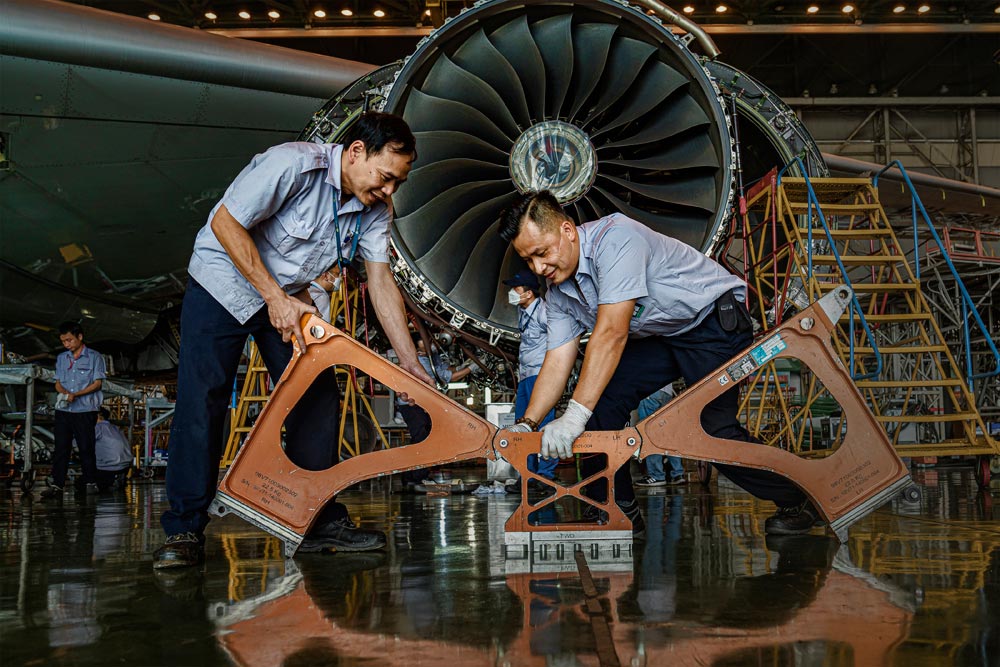Adapting to new production methods
A few years ago, a report by the International Labor Organization (ILO) pointed out that the jobs at risk of being replaced by robots were factory workers (44%); cashiers (40%), taxi drivers (20%); customer service staff (18%), pilots (16%)...
In the article “Digital transformation - An important driving force for developing productive forces, perfecting production relations, bringing the country into a new era”, General Secretary To Lam emphasized: “Digital transformation is not simply the application of digital technology to socio-economic activities, but also the process of establishing a new, advanced and modern mode of production - “digital production mode”, in which the characteristic of productive forces is the harmonious combination of humans and artificial intelligence; data becomes a resource, an important means of production; at the same time, production relations also have profound changes, especially in the form of ownership and distribution of digital means of production”.
Adapting to the “revolution with strong and comprehensive reforms to adjust production relations and create new momentum for development”, Vietnamese workers need to make changes to affirm their role as a pillar force in economic and social development. In the modern context, their role is not only to implement but also to be the driving force for innovation, creativity and sustainable development.

Dr. Pham Thi Hoang Ha - Director of the Institute of Scientific Socialism under the Ho Chi Minh National Academy of Politics - commented: "The development from simple laborers to intellectual workers has become a common trend of social development and progress. In the conditions where technology, information, and science occupy the leading position in production, intellectual workers become the most advanced part of the modern working class."
Discussing the issue of intellectualizing Vietnamese workers today, Associate Professor Dr. Le Manh Hung of the Trade Union University said: “Intellectualizing workers is inevitable. However, the quality of Vietnam's workforce is low in the international scale and many of our economic sectors and fields are thirsty for highly skilled and specialized human resources, including fields such as basic construction.”
From the perspective of a specific industry or profession, Ms. Pham Thi Thanh Tam - President of the Vietnam Textile and Garment Trade Union - stated: "Technological advances and automation in the textile and garment industry are changing the labor structure, requiring workers to have new skills. One of the important tasks of the Trade Union organization is to effectively participate in training programs to improve the qualifications and skills of workers, especially career transition activities, technology updates, support and innovation in the workforce".
Vietnamese workers' value system towards a new era of the nation
Associate Professor, Dr. Le Manh Hung said that improving skills and ensuring adaptation to science and technology is only part of the value system of Vietnamese workers today.
In the context of economic transformation, international integration and the 4.0 industrial revolution, building a system of values for Vietnamese workers in the new period is a strategic task to affirm the pioneering role of the working class. In particular, promoting the spirit of patriotism and national responsibility of Vietnamese workers; Creative, disciplined and professional labor; Technical level, sense of organization and creativity are the foundation for improving labor productivity and quality; Solidarity, humanity and community cohesion.

Dr. Cao Tuan Phong - Vietnam Economic Institute analyzed solutions to improve the value system of Vietnamese workers: "Firstly, it is necessary to improve the political level, class awareness and political mettle of Vietnamese workers.
Second, building and implementing a strategy for developing the working class is reflected in the development and completion of policies and laws on labor, employment, life, and improving the physical health of workers.
Third is to focus on improving vocational training, educational level, and intellectualization of Vietnamese workers.
Fourth is to improve the material and spiritual life of workers, especially those in industrial parks and export processing zones." Dr. Cao Tuan Phong emphasized that the Trade Union organization will be an important factor in implementing the above solutions.
Returning to the question “Can technology and artificial intelligence completely replace the role of workers?”, experts agree that no matter how advanced technology is, there are still aspects in which workers play a unique and irreplaceable role. That is creativity and innovation at work.
Besides, the worker is the embodiment of the spirit of labor representing the spirit of dedication, solidarity and social responsibility. And finally, the work of the worker not only creates economic value but also brings stability to the family, community and society.
(Posted on the special edition of Lao Dong Xuan At Ty)











